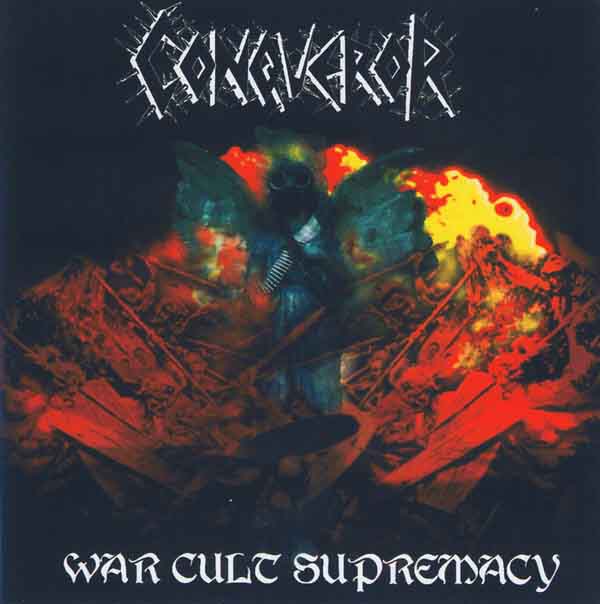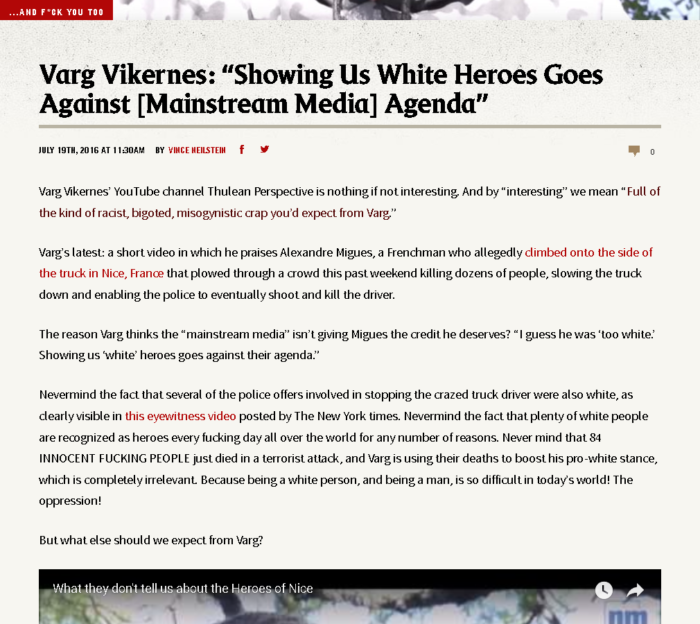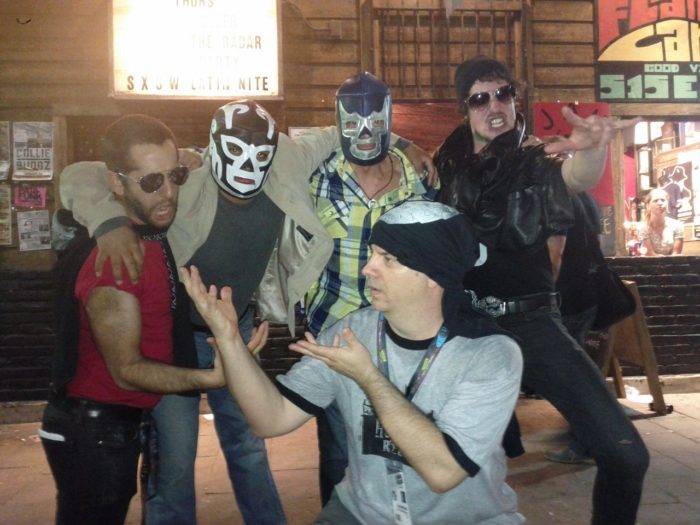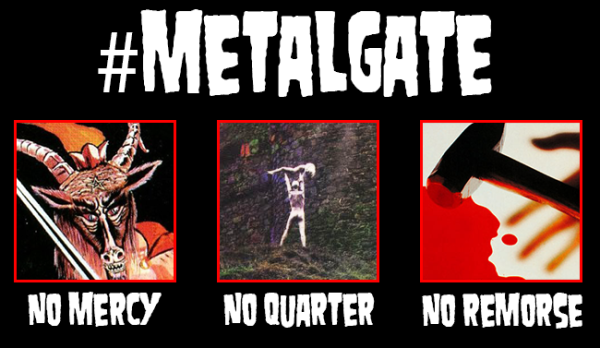
The metal community has always defended itself against poseurs, with most of us realizing that hipsters, scenesters and other groups are varieties of poseur.
What is a poseur? Someone who pretends for the social status of being seen in a hip group. Metal, as it turns out, has authenticity because we are actual rebels, not rock ‘n’ rollers singing protest songs to give legitimacy to their pursuit of hedonism.
Hipsters, poseurs and scenesters are threatening because they are insincere. They adopt a musical genre to make themselves look cool, and in the process sabotaging it by bring it to a lowest common denominator of attention-getting behavior.
This guts the genre from within. The spirit that made it authentic has been replaced with the same trashy plastic advertising that covers everything else. The genre then becomes absorbed by the same old stuff, which is itself a mishmash of whatever has sold records over the past five generations.
Perhaps the best definition of hipster — the mishmash left over when a civilization fails — comes to us from AdBusters magazine:
Ever since the Allies bombed the Axis into submission, Western civilization has had a succession of counter-culture movements that have energetically challenged the status quo. Each successive decade of the post-war era has seen it smash social standards, riot and fight to revolutionize every aspect of music, art, government and civil society.
But after punk was plasticized and hip hop lost its impetus for social change, all of the formerly dominant streams of “counter-culture” have merged together. Now, one mutating, trans-Atlantic melting pot of styles, tastes and behavior has come to define the generally indefinable idea of the “Hipster.”
An artificial appropriation of different styles from different eras, the hipster represents the end of Western civilization – a culture lost in the superficiality of its past and unable to create any new meaning. Not only is it unsustainable, it is suicidal. While previous youth movements have challenged the dysfunction and decadence of their elders, today we have the “hipster” – a youth subculture that mirrors the doomed shallowness of mainstream society.
But even that captures what hipsters are now, not the simple fact that they are an old archetype going back to The Enlightenment. The Bohemians of the 1900s, the rebels of the 1600s, and the giggin’ hipsters of the 2010s have some things in common: deliberately unconventional behavior, focus on ironism and uniqueness at an aesthetic level, and hedonistic lifestyles at the expense of the rest of us.
New York Magazine has more on the history of the hipster:
The hipster, however, was someone else already. Specifically, he was a black subcultural figure of the late forties, best anatomized by Anatole Broyard in an essay for the Partisan Review called “A Portrait of the Hipster.” A decade later, the hipster had evolved into a white subcultural figure. This hipster—and the reference here is to Norman Mailer’s “The White Negro” essay for Dissent in 1957—was explicitly defined by the desire of a white avant-garde to disaffiliate itself from whiteness, with its stain of Eisenhower, the bomb, and the corporation, and achieve the “cool” knowledge and exoticized energy, lust, and violence of black Americans. (Hippie itself was originally an insulting diminutive of hipster, a jab at the sloppy kids who hung around North Beach or Greenwich Village after 1960 and didn’t care about jazz or poetry, only drugs and fun.)
The hipster, in both black and white incarnations, in his essence had been about superior knowledge—what Broyard called “a priorism.” He insisted that hipsterism was developed from a sense that minorities in America were subject to decisions made about their lives by conspiracies of power they could never possibly know. The hip reaction was to insist, purely symbolically, on forms of knowledge that they possessed before anyone else, indeed before the creation of positive knowledge—a priori.
This leads us to wonder: why are hipsters so omnipresent, if they are transparent? Hipsters seek others who are either clueless or equally dependent on not mentioning the fakeness of hipsterism. Like drug addicts clustering, or cult members in their caverns, hipsters seek out people they can manipulate, control and influence.
The New York Times gives us a glimpse into the psychology of the hipster:
All hipsters play at being the inventors or first adopters of novelties: pride comes from knowing, and deciding, what’s cool in advance of the rest of the world. Yet the habits of hatred and accusation are endemic to hipsters because they feel the weakness of everyone’s position — including their own. Proving that someone is trying desperately to boost himself instantly undoes him as an opponent. He’s a fake, while you are a natural aristocrat of taste. That’s why “He’s not for real, he’s just a hipster” is a potent insult among all the people identifiable as hipsters themselves.
With all that being said, would you want this self-important psychology and fake social scene to invade your genre? This question weighs heavily on metalheads as SJWs emerge as the newest form of hipster, combining the demands for personal hedonism with a Communist-derived insistence that others subsidize it through tolerance and, ultimately, actual subsidies. It’s not surprising that many hipsters exist on an equal diet of trust funds and food stamps.
SJWs want to have the hipster psychology take over heavy metal, and while they claim it is for political reasons, the real reason is much simpler: they want to fill the room with people they can control, manipulate and influence by excluding anyone who is a realist, or has a complex worldview, or adheres to traditional heavy metal ideals. SJWs want to destroy our standards and replace them with their own so that, in the new chaos, they can keep the genre filled with clueless people who won’t point out the obvious.
That SJWs are just giggin’ hipsters.
19 CommentsTags: gamergate, hipster, hipsters, metalgate, poseur, poseurs, scenester, scenesters, sjws












